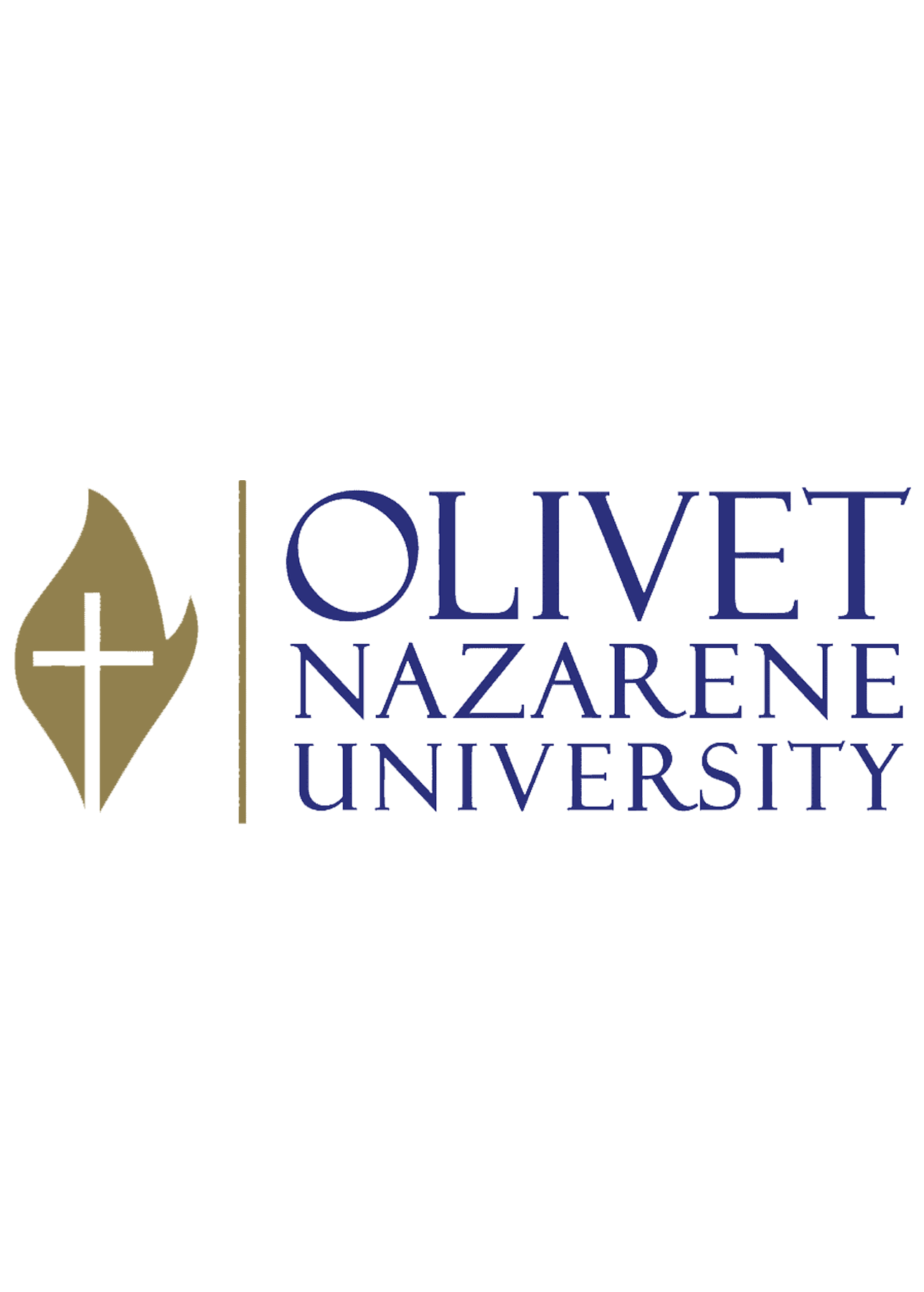The role of journalists has evolved significantly over the last decade, shifting from traditional print and broadcast roles to new opportunities in digital media and content creation. An online bachelor’s in journalism is ideal for future reporters, content creators, or communication professionals, with graduates pursuing careers as news reporters, earning a median salary of $57,500, copywriters, making $73,690, or public relations specialists, earning $66,750 — among others. With a degree this versatile, you can count on diverse job opportunities while being able to adapt to the ever-changing demands of modern media.
Why Trust Us
The Intelligent.com Higher Education Team is dedicated to providing students with independent, equitable school and program rankings and well-researched resources. Our expert-driven articles cover topics related to online colleges and programs, paying for school, and career outlooks. We use data from the U.S. Department of Education’s College Scorecard, the National Center for Education Statistics, and other reputable educational and professional organizations. Our academic advisory team reviews content and verifies accuracy throughout the year for the most current information. Partnerships do not influence rankings or editorial decisions.
- Analyzed over 2,000 national, accredited, and nonprofit colleges and universities
- 800+ rankings pages are reviewed and updated yearly
- Content is informed by reputable sources, surveys, and interviews with academic advisors and other experts
- Over 100 data points are reviewed for accuracy and quality throughout the year, including sources
How we rank schools
Our list features the best online Journalism degree programs at top colleges nationwide. Each school featured is a nonprofit, accredited institution — either public or private — with a high standard of academic quality for post-secondary institutions.
We evaluated each school’s program on tuition costs, admission, retention and graduation rates, faculty, reputation, and the student resources provided for online students. We collected data from trusted sources like the National Center for Education Statistics, individual school and program websites, school admissions counselors, and other data sources. Then, we calculated the Intelligent Score on a scale of 0 to 100 based on the following criterion:
Academic Quality:
- Admission rate versus enrollment rate
- Retention rate of students who return after year one
- Accreditation status (regional and programmatic)
- Nonprofit status, both private and public institutions
Graduation Rate
- Overall graduation rate
- Total number of currently enrolled students, including diversity metrics
- Student-to-faculty ratio
Cost and ROI
- In-state and out-of-state per-credit tuition rates and fees
- Required credits to graduate
- Earning potential after graduation
- Availability of federal student loans, scholarships, and other financial aid options
Student Resources
- Available student services for online-only and hybrid programs
- On-campus amenities like tutoring centers and the number of libraries
Read more about our ranking methodology.
Best 26 Online Bachelor's in Journalism Programs
FiltersInstitution Type
Status
- Intelligent Score
- Alphabetically By University Name
- Acceptance Rate
- Enrollment
- In-state Graduate Tuition
- Out-of-state Graduate Tuition
- In-state Undergraduate Tuition
- Out-of-state Undergraduate Tuition

Southern Illinois University
Intelligent Score: 97.99In-state: $9,591
Out-of-state: $9,591
In-state: $11,268
Out-of-state: $11,268
SAT: 930-1180
ACT: 20-27
$321.50 per credit
Online, On-Campus
Accrediting Council on Education in Journalism and Mass Communications
120 credits

Regent University
Intelligent Score: 97.51In-state: $17,220
Out-of-state: $17,220
In-state: $15,552
Out-of-state: $15,552
SAT: 940-1220
ACT: 21-29
$450 per credit
Online, On-Campus
Southern Association of Colleges and Schools Commission on Colleges
120 credits

DePaul University
Intelligent Score: 97.2In-state: $40,551
Out-of-state: $40,551
In-state: $19,370
Out-of-state: $19,370
SAT: N/A
ACT: N/A
$655 per credit
Online, On-Campus
Higher Learning Commission
192 credits

University of Massachusetts Amherst
Intelligent Score: 96.39In-state: $15,791
Out-of-state: $35,779
In-state: $14,014
Out-of-state: $14,014
SAT: 1200-1390
ACT: 27-32
$390 per credit
Online, On-Campus
New England Commission of Higher Education
120 credits

Drexel University
Intelligent Score: 96.29In-state: $53,868
Out-of-state: $53,868
In-state: $36,234
Out-of-state: $36,234
SAT: 1180-1380
ACT: 25-31
$530 per credit
Online
National Association of Schools of Arts & Design
180-184 credits

Pennsylvania State University
Intelligent Score: 95.77In-state: $15,025
Out-of-state: $24,413
In-state: $22,464
Out-of-state: $22,464
SAT: 1070-1300
ACT: 24-29
$576 - $617 per credit
Online
Accrediting Council on Education in Journalism and Mass Communications
120 credits

Texas State University
Intelligent Score: 94.56In-state: $8,326
Out-of-state: $19,778
In-state: $6,946
Out-of-state: $6,946
SAT: 1010-1180
ACT: 20-25
Resident: $297.34 per credit
Non-Resident: $706.34 per credit
Online, On-Campus
Accrediting Council on Education in Journalism and Mass Communications
120 credits

Mississippi College
Intelligent Score: 89.87In-state: $18,200
Out-of-state: $18,200
In-state: $11,610
Out-of-state: $11,610
SAT: 1140-1260
ACT: 21-29

The University of New Mexico - Communication & Journalism
Intelligent Score: 88.53In-state: $7,019
Out-of-state: $34,198
In-state: $10,552
Out-of-state: $10,552
SAT: 1280-1490
ACT: 28-33
$350.86 per credit
Online, On-Campus
Accrediting Council on Education in Journalism and Mass Communications
120 credits

Colorado State University
Intelligent Score: 87.64In-state: $9,426
Out-of-state: $28,147
In-state: $10,520
Out-of-state: $10,520
SAT: 1070-1280
ACT: 23-29

Cameron University
Intelligent Score: 87.05In-state: $4,740
Out-of-state: $14,160
In-state: $3,564
Out-of-state: $3,564
SAT: N/A
ACT: N/A
Resident: $215 per credit
Non-Resident: $529 per credit
Online, On-Campus
Higher Learning Commission
124 credits

Wilmington University
Intelligent Score: 85.5In-state: $11,430
Out-of-state: $11,430
In-state: $8,784
Out-of-state: $8,784
SAT: N/A
ACT: N/A

New England College
Intelligent Score: 80.89In-state: $25,439
Out-of-state: $25,439
In-state: $15,624
Out-of-state: $15,624
SAT: N/A
ACT: N/A
$320 per credit
Online, On-Campus
New England Commission of Higher Education
120 credits

Oral Roberts University
Intelligent Score: 79.55In-state: $29,700
Out-of-state: $29,700
In-state: $11,052
Out-of-state: $11,052
SAT: 980-1220
ACT: 19-27
$410 per credit
Online, On-Campus
Higher Learning Commission
121 credits

University of North Dakota
Intelligent Score: 79.41In-state: $8,540
Out-of-state: $12,810
In-state: $11,060
Out-of-state: $11,060
SAT: 1000-1230
ACT: 20-27
$355.85 per credit
Online, On-Campus
National Association of Schools of Public Affairs and Administration
120 credits

West Virginia University
Intelligent Score: 78.09In-state: $8,976
Out-of-state: $25,320
In-state: $10,134
Out-of-state: $10,134
SAT: 1030-1230
ACT: 21-27
Resident: $319 per credit
Non-Resident: $1,000 per credit
Online, On-Campus
Accrediting Council on Education in Journalism and Mass Communications
120 credits

Olivet Nazarene University
Intelligent Score: 76.42In-state: $35,960
Out-of-state: $35,960
In-state: $13,393
Out-of-state: $13,393
SAT: 970-1190
ACT: 19-26
$495 per credit
Online, On-Campus
Higher Learning Commission
120 credits

The University of Iowa - School of Journalism and Mass Communication
Intelligent Score: 75.72In-state: $8,073
Out-of-state: $30,036
In-state: $10,079
Out-of-state: $10,079
SAT: 1110-1310
ACT: 22-29
$337 per credit
Online, On-Campus
Accrediting Council on Education in Journalism and Mass Communications
120 credits
What You Should Know About an Online Bachelor’s in Journalism Degree
When deciding on a program of study for your bachelor’s degree, consider the type of journalism you’d like to focus on during your career. While excellent writing skills are needed for news coverage and online reporting, you will also need additional on-camera and public experience for broadcast journalism. Check for the specializations and specific coursework offered by each degree program to make sure you’ll learn the required skills for your desired profession.
Graduates can expect stiff competition as the number of jobs continues to decline due to a loss in advertising revenue across newspapers, television, and magazines. Prospective employers looking to maximize their team’s output will look for candidates with diverse skillsets and strong knowledge of operating in the rapidly transforming world of modern journalism.
Additional certifications and licensing can help you stand out from other candidates and improve your career prospects.
Finding the Right Online Program
Here are some questions to ask when researching online bachelor’s in journalism programs:
- Am I eligible for this program? Most students with a high school diploma can pursue an undergraduate degree in journalism. However, many programs may request writing samples, a minimum GPA, and some previous experience in journalism. Visit the website of the program you wish to attend to learn more detailed information about what is required.
- How long does it take to complete an online degree? The programs on this list require around 120 credits, which most students take about four years to complete.
Be mindful of application deadlines and entry requirements, as they vary between programs. Most schools share information about admissions directly on their website. You can also learn more by contacting the office of the registrar.
Higher education can be expensive, so it’s important to consider how you’ll cover these costs. Scholarships, federal student aid, and other financial funding opportunities are available to help alleviate these costs.
Frequently Asked Questions About Online Journalism Programs
What career opportunities are available with an online bachelor’s in journalism degree?
A bachelor’s degree in journalism offers a versatile skillset, providing opportunities in several fields. For example, strong communicators who can stay level-headed in a crisis may excel as public relations specialists — managing and improving the public image of clients or organizations. Individuals in this field earned $66,750 in 2023, with an anticipated 8% job growth over the next decade. Journalism graduates are also eligible for careers as podcast producers, and with the growing popularity of podcasts, this could be a burgeoning field worth exploring. In 2023, producers earned a median salary of $82,510 with an expected job growth rate of 8%. Additional opportunities to consider include social media management, copywriting, and editing.
Are online bachelor’s in journalism degree programs as credible as on-campus programs?
Yes, online bachelor’s programs in journalism are often just as credible as on-campus ones. Many online programs feature identical curriculums and instructors as their on-campus counterparts, ensuring the same quality of education. The primary difference lies in their flexibility — online learning allows students to study on their own timeline, making it a potentially excellent fit for those balancing a full-time job or raising a family. Additionally, employers typically value the discipline required for online learning, making these degrees just as respected in the professional world.
How long does it take to complete an online bachelor’s in journalism degree?
These degrees typically take about four years to complete, similar to traditional in-person programs. However, it’s important to note that online learning offers flexibility that can shorten or extend this timeline. Accelerated programs or taking extra courses can help you graduate faster, while part-time enrollment allows you to balance studies with work or other commitments, potentially extending the timeline to completion.
Are there specialization options within online bachelor’s in journalism degree programs?
Journalism undergraduates can choose from many specializations, including investigative, broadcast, or multimedia journalism, sports reporting, and public relations, with each specialization providing different job opportunities.
For instance, focusing on broadcast journalism can lead to roles as news anchors or producers. In contrast, a multimedia journalism specialization prepares students for careers in digital content creation or video production. Public relations specializations often go directly into roles like PR specialist or communications manager, and sports reporting can lead to work with sports networks or publications.
What is the cost of an online bachelor’s in journalism degree?
According to the National Center for Education Statistics, the average undergraduate tuition for the 2022-2023 academic year was $14,688. Factors like public vs. private institutions, in-state vs. out-of-state tuition, and additional technology or online access fees can significantly affect this figure, causing tuition rates to fluctuate. Public universities often offer lower tuition rates, especially for in-state students, while private institutions are more expensive. As a prospective student, it’s important to research individual programs to find one that fits your budget and educational goals.

